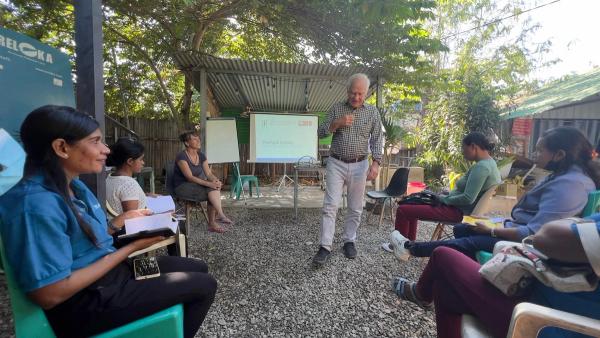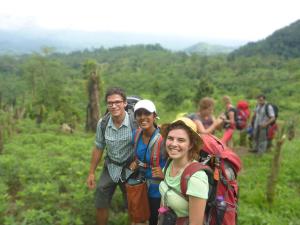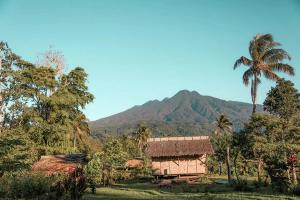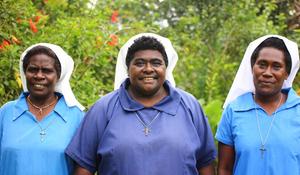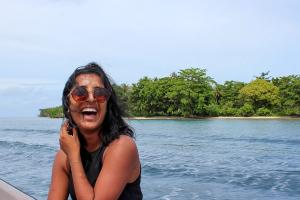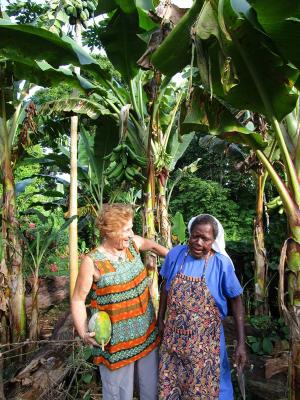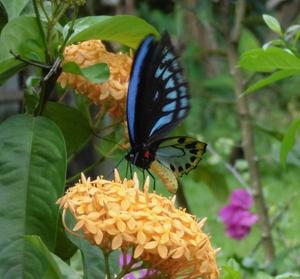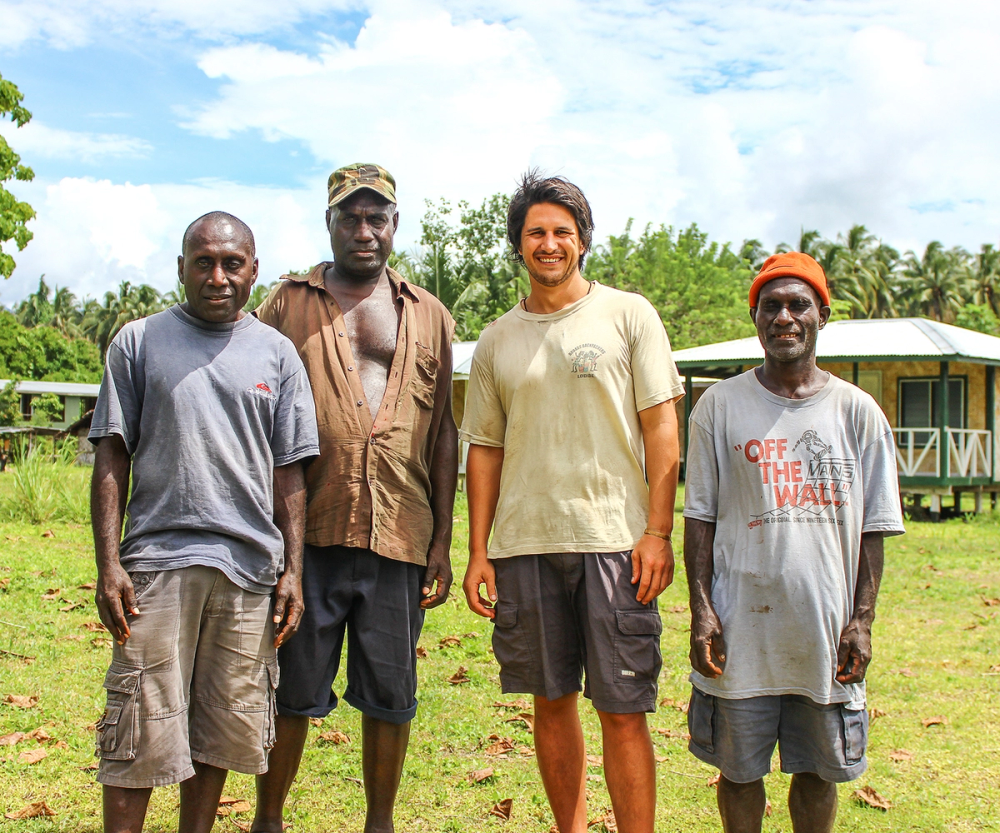

Bougainville
The Autonomous Region of Bougainville (ARoB) is one of the Pacific’s most culturally rich and politically complex regions.
Located in the Solomon Islands archipelago and officially part of Papua New Guinea, Bougainville is a place of extraordinary resilience and beauty—with a long-standing commitment to recovery and self-determination.
For over 25 years, VSA has partnered with local communities and the Autonomous Bougainville Government (ABG) to support peacebuilding, community development, and leadership. Our work continues today with a focus on locally led change and long-term impact.
Since 1998, VSA has worked alongside communities in Bougainville, initially supporting post-conflict reconstruction.
Our volunteers collaborate with the ABG, local NGOs, and international partners to help build a sustainable and peaceful future for the people of Bougainville.
With field offices in Arawa and Buka, our volunteers are deeply embedded in the region and work across areas including:
1
Education and youth empowerment
2
Health and mental wellbeing
3
Community resilience and governance
4
Climate change and environmental management
Economic Context
Bougainville’s economy is largely informal and community-based. Agriculture, fishing, and small-scale trading are the primary livelihoods. The region’s rugged geography and limited infrastructure make transport and logistics challenging.
VSA volunteers support local economic development through roles that promote:
- Sustainable agriculture
- Women’s economic participation
- Capacity building for public service delivery
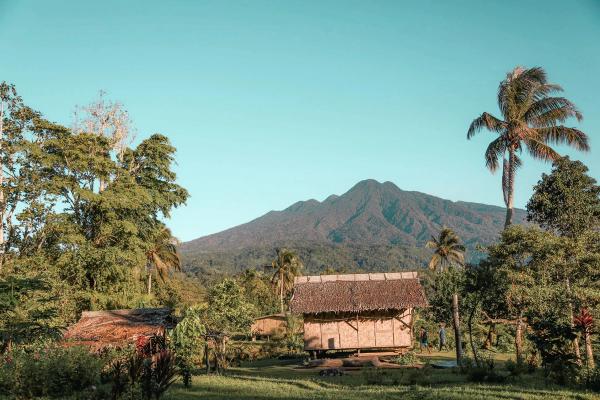

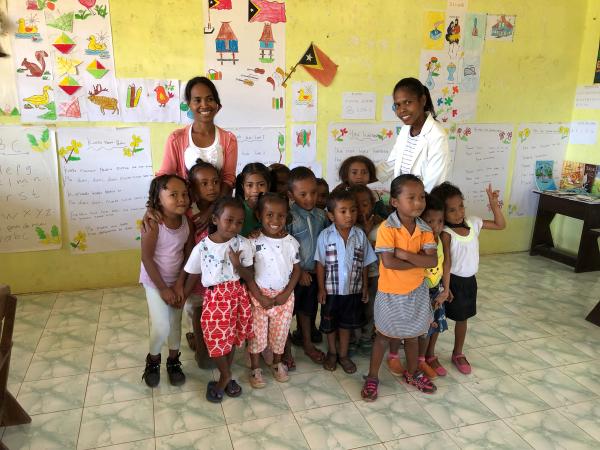

Development challenges
Following decades of civil conflict, Bougainville faces a unique set of development challenges:
- Post-conflict trauma and ongoing peace-building efforts
- Weak infrastructure and limited access to services
- Youth unemployment and educational access gaps
- Land ownership complexities and governance reforms
Our assignments are designed to address these challenges by working with communities to build local leadership, resilience, and opportunity.
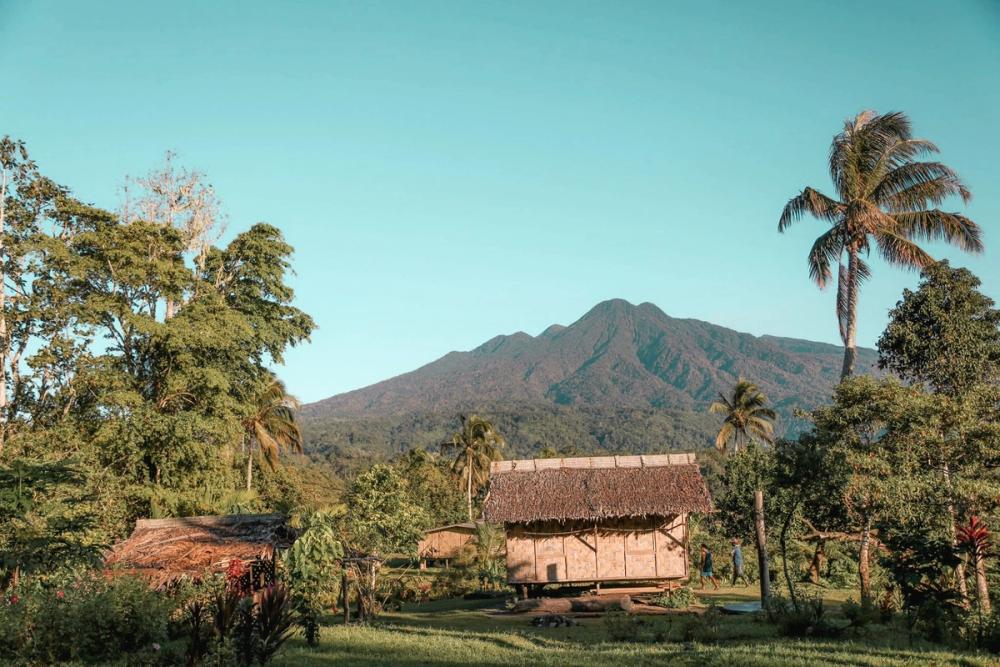

Things to consider when living and volunteering in Bougainville
1
Bougainville Crisis and Referendum
The Bougainville conflict or crisis as it is generally referred to, began in late 1988 and ended in 1997 with the beginning of the formal peace process. A comprehensive count of deaths is absent although in 2005 the UN News Centre put the death toll at 15,000. The crisis led to the extensive destruction of private and public properties, the termination of provincial and central government services in most areas, and widespread trauma and injuries.
2
Banking and finances
There are three banks in Bougainville: The Bank of the South Pacific (BSP) in Buka, Arawa and Buin. Long queues are common. We open a local bank account for volunteers once they arrive in Bougainville, and volunteers in Arawa and Buka are paid monthly living allowances into these accounts. Debit cards are available, and there are A.T.M. machines in Buka and Arawa. You can usually get cash back when you make purchases at many stores using your card. Many guesthouses accept foreign credit cards, as do Air Niugini. The local currency is the Kina. Visit XE.com for current exchange rates.
3
Cell phones and email
Bougainville has two cellular providers, Telikom and Digicel. Coverage is generally good within urban areas but fades quickly as you move to rural locations. International connections, though, can be unreliable, especially during the day when sent text messages can fail or take hours to get through. Internet connection is very limited compared to New Zealand. Recently Digicel has upgraded to 3G in Arawa and Buka, which has improved internet capacity and speed. Telikom and Digicel have USB modems available, costing around PKG100 and offer increasingly competitive data packages.
4
Dress standards
Bougainville is a conservative region, and some Western-style clothing is not appropriate. Loose-fitting, light, cotton clothing is best. For men, choose long pants, knee-length shorts and short-sleeved shirts. For women, dresses, skirts and t-shirts are commonly worn – sleeveless shirts are also acceptable. Don’t expose skin above the knee, though, especially when attending traditional events. Women should wear shorts and a t-shirt while swimming.
5
Language and culture
VSA assignments usually last one year, so local language training is essential. We encourage basic language training (tok pisin) at the start of assignments with follow-ups, if necessary, during assignments. Understanding local customs is vital to a successful assignment. Bougainville is typical of many developing countries where people do not usually approach things head-on. Talking about family and local issues is often required before discussing what you, as a volunteer, may want.
6
Health
Malaria is endemic in Bougainville, and all volunteers must use malarial prophylaxis. Other precautions are still recommended, such as insect repellent and long sleeves/trousers in the evening if outside, depending on housing a mosquito net. Skin infections can develop quickly, so have a good supply of plasters, antibiotic cream and antibiotics. There is a public hospital in Buka and Arawa, Buin has health centres, with smaller centres scattered around the islands. Health care is very basic, and you will need to be proactive and responsible for managing your health while on assignment.
7
Housing and living conditions
We provide volunteers with basic, furnished accommodation, but you may be asked to share accommodation with other volunteers as there is a shortage of suitable housing. All volunteer housing has gas facilities for cooking; most rely on rainwater for water supply, so be aware of your water use. In Buka and Arawa, you’ll probably have access to 24-hour power, although prolonged power outages are a regular occurrence. If you are based elsewhere, access to power and services are more limited and may be generator-based, available for specific times during the day.
Bougainville is still a post-conflict society, and there are more restrictions on how volunteers can move around than in other locations. It is recommended you do not go out alone at night, so a good supply of books, DVDs or games may be required. Social activities normally associated with New Zealand society are limited, although swimming, canoeing, fishing, snorkeling and some trekking opportunities are available.
8
Safety
We provide volunteers with basic, furnished accommodation, We provide all selected volunteers with a thorough security briefing and specific local issues are covered during your in-country orientation. Generally, the post-conflict nature of Bougainville means you’ll need to be aware of your surroundings and make sensible decisions on personal safety. Land ownership is complex, and strangers cannot wander freely through private or empty land without first seeking permission. Take care when walking alone and avoid this at night. Walking in Buka, Arawa and Buin during the day is quite safe and there is a New Zealand Community Policing Project operating in these three towns.
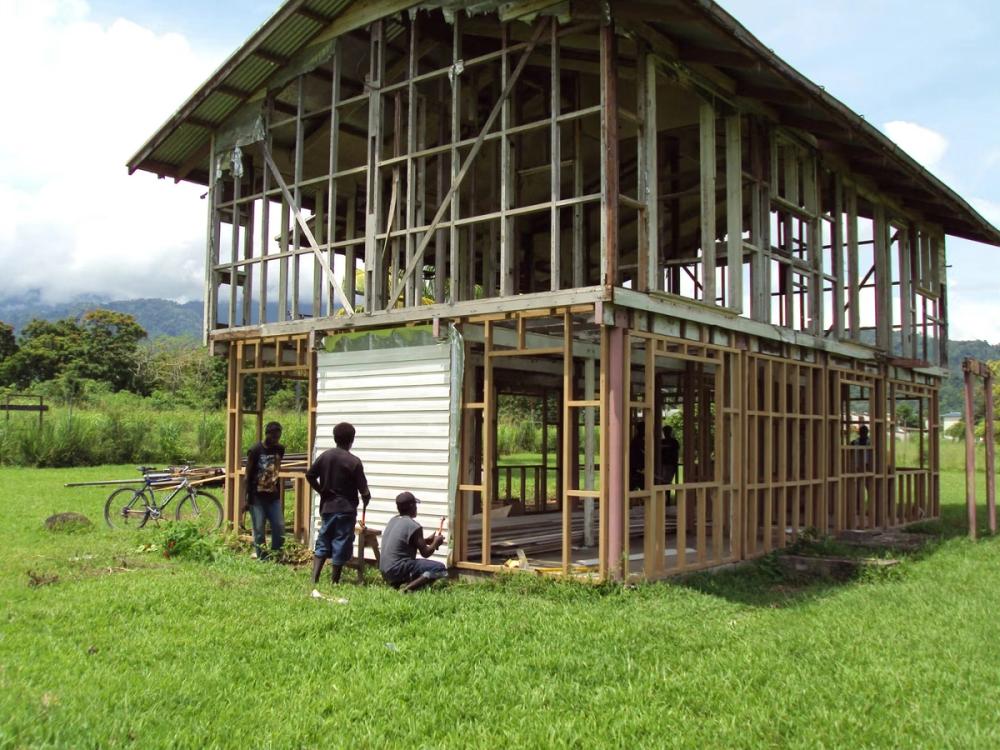

Six Volunteer Assignments, Three Pacific Countries, Ten Years with VSA and Counting!
Open positions
Let’s work together to create meaningful change.
Want to become a partner?
We work in partnership with government agencies, NGOs, and community groups to share skills, strengthen systems, and support locally driven development.
If your organisation could benefit from volunteer expertise in areas like education, health, agriculture, governance, or climate resilience—we’d love to hear from you.
